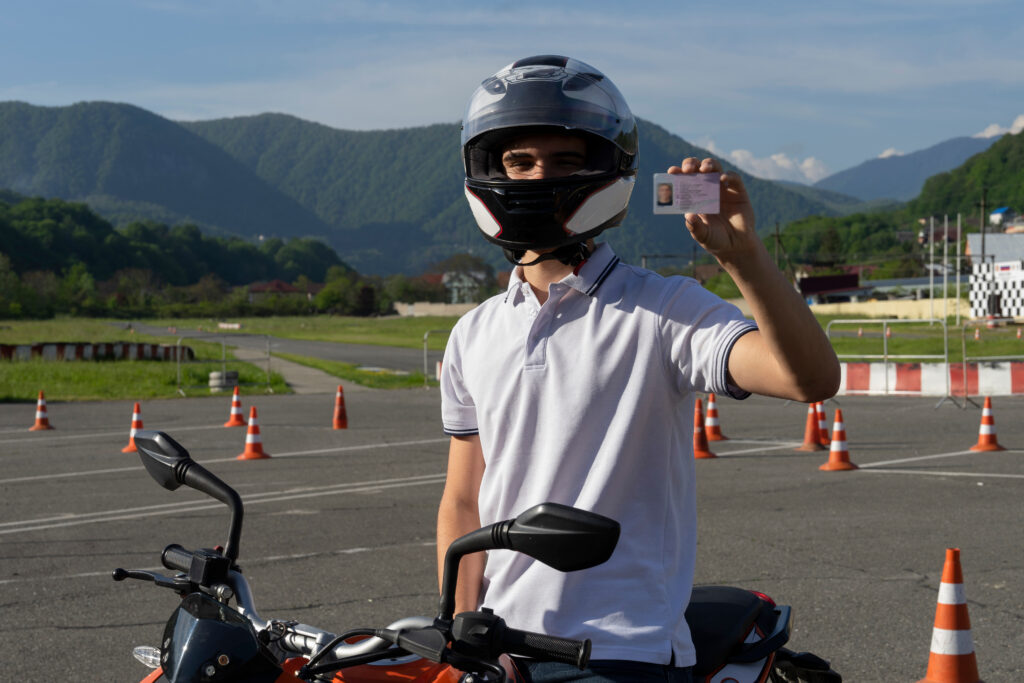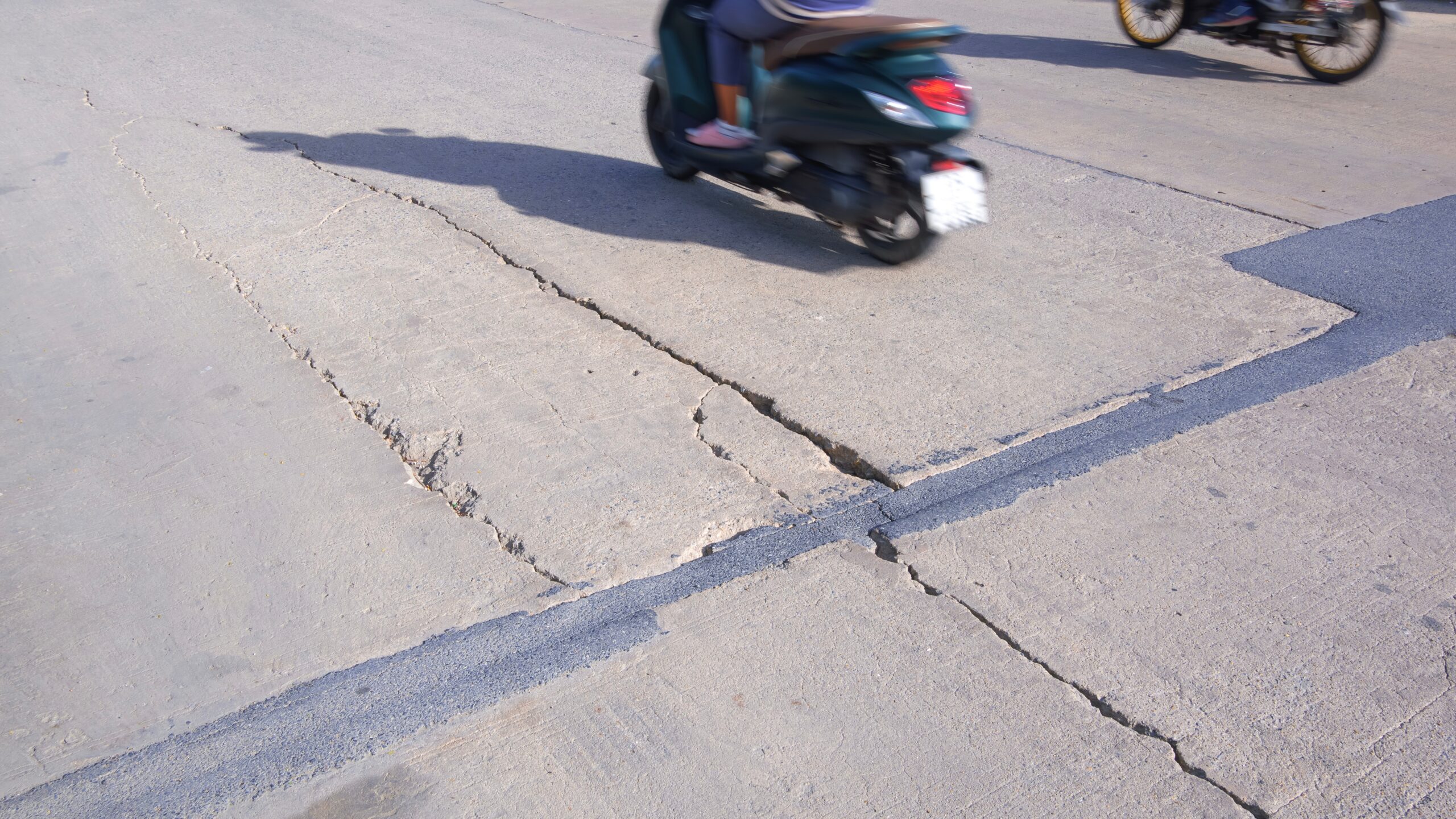Motorcycles offer a unique blend of freedom, exhilaration, and convenience. However, before riding on the open road, motorcyclists must navigate a series of legal and safety requirements to ensure they are legally compliant and safe while riding.
Many aspiring riders wonder whether a motorcycle license is required to operate a motorcycle. Every state has requirements for motorcycle riders, including licensing. Additionally, riders must often take safety and riding lessons and undergo examinations to secure a license.
Still, even with a license, motorcycle riders are not guaranteed safety on the roads. If an accident injures you, a seasoned San Mateo motorcycle accident lawyer can advise you, pursuing any possible justice and compensation.
Are You Required to Have a Motorcycle License to Ride?

In short, yes, you typically need a motorcycle license to operate a motorcycle. Whether you are an experienced rider or a beginner, all states in the U.S. require a separate license or endorsement to legally ride a motorcycle on public roads.
To obtain this license or endorsement, motorcyclists need training in the proper operation of motorcycles, knowledge of specific road safety issues unique to riding motorcycles, and compliance with state and federal regulations.
In many states, new riders are issued a learner’s permit, which allows them to practice riding under specific conditions (e.g., no passengers, no riding after dark, etc.) before they take the full motorcycle skills test and obtain a full motorcycle license.
Some states allow individuals to add a motorcycle endorsement to their existing driver’s license rather than requiring a separate license entirely. This endorsement typically comes after completing a motorcycle safety course or passing a road skills test.
A separate license is not typically required for riders looking to operate smaller motorized vehicles, like mopeds or scooters. Still, refer to your state’s requirements before getting on the road.
General Requirements for Obtaining a Motorcycle License
While specific requirements may vary by state, there are several common elements to getting a motorcycle license:
Minimum Age
Most states set a minimum age of 16 or 18 for a motorcycle license. Some states also require adult supervision or a learner’s permit.
Written Knowledge Test
Riders must take a written knowledge test covering motorcycle laws, road signs, and safe driving practices. This test may include questions specific to motorcycles, such as handling curves, proper lane positioning, and defensive driving strategies.
Motorcycle Safety Course
Many states offer (or require) a motorcycle safety course, such as the Motorcycle Safety Foundation (MSF) Basic RiderCourse. This covers essential riding techniques, safety tips, and rules of the road. Completing a safety course may allow riders to skip the road skills test in some states and earn their license more easily.
Road Skills Test
If a safety course is not completed or a state does not waive the requirement, riders may be required to take a road skills test. This test requires you to demonstrate stopping, turning, swerving, and maneuvering in various conditions.
Vision Test
The state may require a vision test to ensure that riders can safely see and react to hazards on the road.
Proof of Identity and Residency
Like obtaining any other driver’s license, riders must provide proof of identity, residency, and legal presence in the country. This often includes showing a birth certificate, passport, or other government-issued identification.
Fee Payment
Similar to other licenses, obtaining a motorcycle license or endorsement typically involves application fees, which riders must submit during the application process.
Other Important Motorcycle Rules and Regulations
Beyond licensing, motorcyclists must follow many laws and regulations to ensure their safety and minimize their risk of accidents. Some important ones often include:
Helmet Laws
Most states require helmets for all motorcyclists, regardless of age or experience. These laws recognize that wearing a helmet significantly reduces the risk of head injuries.
However, helmet laws vary widely by state:
- Universal helmet laws: These laws require all motorcyclists to wear helmets, regardless of their age or experience. 47 states, including California and New York, have universal helmet laws.
- Partial helmet laws: Some states require helmets only for younger riders (usually under 18 or 21) but not for adult riders. States with partial helmet laws include Florida and Texas.
- No helmet laws: A few states do not have helmet laws at all, or they may allow riders to opt out of wearing a helmet if they meet certain criteria (such as having health insurance or completing a motorcycle safety course).
Wearing a helmet can prevent injuries, but it does not totally guarantee a rider’s safety. Still, many states employ helmet laws to minimize risk as much as possible.
Motorcycle Equipment Standards
Motorcycles must often meet specific equipment standards for safety and emissions, possible under both state and federal laws. This includes having working lights, mirrors, brakes, and turn signals. Depending on the state, riders are also commonly required to have the proper safety gear, such as gloves, boots, and protective jackets.
Insurance Requirements
Many states require motorcyclists to have motorcycle insurance, which covers bodily injury and property damage caused by an accident. Additional coverage options, such as comprehensive and collision insurance, are also available but may not be mandatory.
Having Proper Training and Licensing Does Not Guarantee Safety
Although states require motorcycle riders to undergo training and licensing, this does not guarantee safety for all motorcyclists. Even the most skilled and experienced riders are vulnerable every time they ride.
Motorcycle riders face many dangers, and motorcycle accidents are entirely too common. In a recent year, crashes injured over 82,000 motorcyclists, and over 6,000 died in accidents.
Receiving training and obtaining licensing can only do so much for riders. After a collision, consult a local motorcycle accident attorney to discuss your rights and options.
Common Causes of Motorcycle Accidents
Motorcycle accidents occur for various reasons, resulting in substantial injuries and property damage. Some of the most common causes of motorcycle accidents include:
Inattentive or Distracted Drivers
Texting, engaging with passengers, eating, or adjusting music or controls can make drivers less aware of their surroundings. This can lead them to miss motorcycles that may be harder to spot due to their size and maneuverability—especially in heavy traffic or when changing lanes.
Failure to Yield or Stop
Failure to yield at intersections is a common cause of motorcycle accidents, especially when drivers fail to notice motorcyclists in their blind spots or do not anticipate their quicker acceleration.
Drivers running red lights or stop signs often don't see motorcycles or misjudge their speed. This can result in a collision when the motorcyclist has the right of way.
Tailgating
Cars following motorcycles too closely can reduce the motorcyclist's ability to maneuver in an emergency. Tailgating can also make it more difficult for a driver to see potential hazards. If the motorcycle brakes suddenly, the tailgating driver may not have enough time to react without causing a collision.
Sudden Lane Changes
Drivers changing lanes without checking mirrors or signaling can cause accidents, especially if they do not notice motorcyclists in their blind spots. The motorcyclist may be forced to swerve to avoid a collision, which can result in an accident with other drivers or stationary objects.
Road Hazards
Potholes, gravel, oil spills, and other road hazards can be particularly dangerous for motorcycles, which have less traction and stability than cars. To avoid these hazards, the motorcyclist may need to swerve and is more likely to lose control of their motorcycle.
Impaired Driving
Drunk or drug-impaired drivers may not recognize the presence of a motorcycle or may drive erratically, which can increase the chances of causing collisions. They can make poor decisions, such as failing to yield or swerving into another lane, and they’re less likely to notice a motorcyclist at an intersection.
Weather Conditions
Rain, fog, snow, or strong winds can make it harder for all vehicles, including motorcycles, to operate safely. Poor visibility and slippery roads are particularly hazardous for motorcyclists, who are more vulnerable than drivers of enclosed vehicles.
Drivers should also adapt their driving technique based on the weather conditions, but when they don’t, they may collide with surrounding vehicles, including motorcycles.
Mechanical Failures
Motorcycle accidents are sometimes due to mechanical failures, such as brake malfunction or tire blowouts. When a mechanical failure occurs suddenly, riders may find it harder to maintain control of their motorcycle long enough to get to safety, resulting in accidents.
Injuries Often Resulting from Motorcycle Crashes
Motorcyclists are more vulnerable to serious injuries in a collision because motorcycles lack the safety features and protections other vehicles provide, like a protective frame, seatbelts, and airbags.
Further, the force of many collisions can eject motorcyclists from their bikes, leading to additional trauma from their bodies directly hitting the pavement, a vehicle, or another object.
Common injuries include:
- Head injuries: Even with a helmet, motorcyclists may sustain traumatic brain injuries (TBI), concussions, and skull fractures. Head injuries are a leading cause of death among motorcyclists.
- Spinal cord injuries: Motorcyclists can suffer spinal cord injuries that may result in partial or complete paralysis, affecting their ability to walk or perform everyday activities.
- Broken bones: The impact of an accident can cause broken arms, legs, ribs, and other bones. Fractures are common due to the rider being thrown from the motorcycle, struck by another vehicle, or pinned under their bike.
- Road rash: When a motorcyclist is thrown from their bike, they can experience road rash, a painful skin abrasion similar to a burn caused by the friction of sliding on pavement.
- Internal injuries: Collisions can cause internal injuries, including damage to organs like the liver, kidneys, or spleen, which can be life-threatening, especially if not treated right away.
Unfortunately, many motorcyclists never fully recover from their catastrophic injuries, dealing with long-term disabilities or disfigurement. Accident injuries can result in long-term impairments and ongoing medical needs, which can be costly and life-altering.
Who Can You Hold Liable for a Motorcycle Collision?
Liability in a motorcycle accident depends on the negligence or recklessness of drivers and other parties.
Potentially liable parties include:
- Other drivers: If another driver causes an accident due to dangerous driving behaviors, they could be held liable for the motorcyclist’s injuries and losses.
- Drivers’ employers: If a driver causes a motorcycle accident and acts within the scope of their employment (such as delivery drivers), the driver’s employer can share responsibility.
- Manufacturers: If an accident is caused by a defective or malfunctioning motorcycle part, such as faulty brakes or tires, the manufacturer may be liable for resulting injuries.
- Governmental entities: When poorly maintained roads or hazardous road conditions cause a motorcycle crash, you can hold a local or state government entity responsible.
When pursuing compensation following a motorcycle accident, you must determine fault for the crash. Determining and proving liability can get you one step closer to securing full and fair financial recovery.
If You’re Injured in a Crash, Seek Legal Representation from a Motorcycle Accident Lawyer Right Away
Riding a motorcycle offers many benefits but requires a commitment to legal compliance, safety, and responsible behavior. Even so, securing a license and following the law does not assure safety from negligent drivers.
After a motorcycle crash, do not wait to consult a qualified motorcycle accident attorney. By working with a skilled San Mateo Personal Injury lawyer, you can protect your interests throughout your case and ensure you have the best chance of receiving the compensation you deserve.


